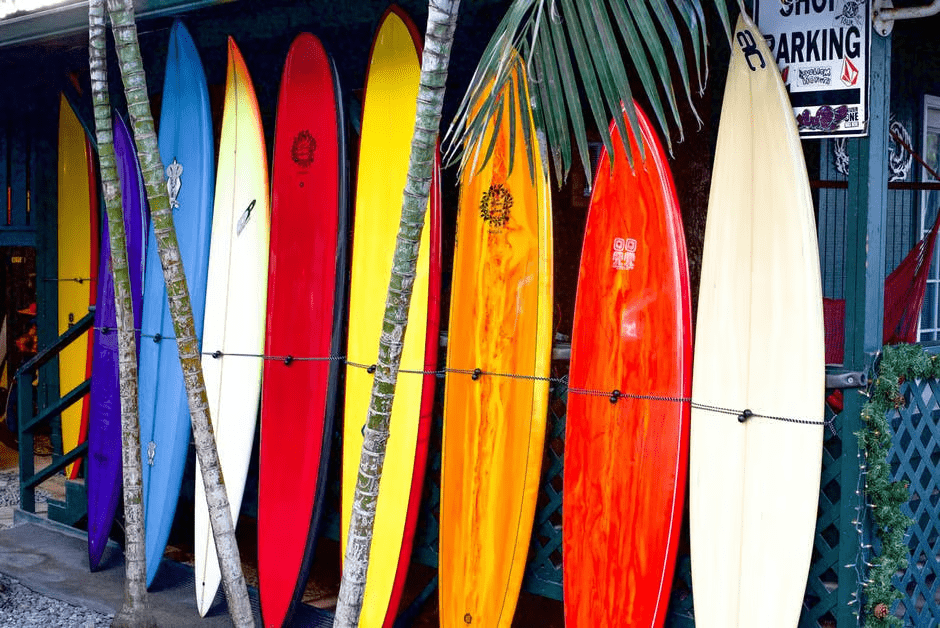
Surfing is more than just a sport; it's a way of life. Whether you're a seasoned pro or just starting, having the right equipment is crucial to your performance and safety in the water. One essential piece of gear that often gets overlooked is the surfboard leash. A surfboard leash not only keeps your board attached to you but also prevents it from becoming a dangerous projectile in the waves. With so many options available, choosing the perfect surfboard leash can seem overwhelming. Here's a guide to help you make the right choice.
Firstly, consider the length of the leash. Leashes come in various lengths, typically ranging from 5 to 12 feet. The length you choose depends on the size of the waves you'll be surfing and your personal preference. Longer leashes give you more freedom to move around on your board but can also create more drag in the water. Shorter leashes, on the other hand, keep your board closer to you, which can be advantageous in crowded lineups or bigger surf.
Next, think about the thickness of the leash cord. Leash cords are usually made from urethane, which is strong and flexible. Thicker cords are more durable and suitable for bigger waves, while thinner cords are lighter and less likely to create drag. However, thinner cords are also more prone to snapping, especially in powerful surf conditions. It's essential to find a balance between strength and weight that suits your surfing style and the conditions you'll be encountering.
Another crucial factor to consider is the leash cuff. The cuff is the part of the leash that attaches to your ankle or calf. It's essential to choose a cuff that is comfortable and secure, as it will be in constant contact with your skin while you're surfing. Neoprene cuffs are the most common and provide a snug fit without causing irritation. Some cuffs also feature padding or extra stitching for added comfort and durability. Make sure to try on different cuffs and find one that feels comfortable and secure before making your final decision.
Additionally, consider the swivel mechanism. The swivel is the part of the leash that connects the cord to the cuff and allows it to rotate freely. A swivel is essential for preventing the leash from tangling around your legs while you're surfing, which can be dangerous and impede your performance. Look for leashes with high-quality, corrosion-resistant swivels that rotate smoothly and freely. This will ensure that your leash doesn't inhibit your movements or become a distraction while you're in the water.
Furthermore, think about the leash thickness. The thickness of the leash cord affects its buoyancy and drag in the water. Thicker leashes are more buoyant and tend to create more drag, while thinner leashes are less buoyant and offer less resistance. Your choice of leash thickness should be based on your skill level, the size of the waves you'll be surfing, and your personal preference. Beginners may prefer thicker leashes for added buoyancy and stability, while more experienced surfers may opt for thinner leashes for less drag and better performance.
Consider the leash attachment. Most leashes feature a Velcro strap or buckle system for attaching the cuff to your ankle or calf. It's essential to choose a leash with a secure attachment system that won't come undone while you're surfing. Additionally, make sure the attachment point is easy to adjust and won't cause discomfort or irritation during long sessions in the water. Some leashes also feature quick-release tabs or emergency releases for added safety in case of entanglement or other emergencies.
Finally, consider the brand and reputation. While there are many surfboard leash brands on the market, not all are created equal. It's essential to choose a leash from a reputable manufacturer known for producing high-quality, durable products. Do some research online, read reviews, and ask fellow surfers for recommendations to ensure you're getting a leash that will stand up to the rigors of surfing and provide reliable performance in all conditions.
In conclusion, choosing the perfect surfboard leash requires careful consideration of several factors, including length, thickness, cuff, swivel, thickness, attachment, and brand reputation. By taking the time to evaluate your needs and preferences, you can find a leash that enhances your surfing experience and keeps you safe in the water. Remember, investing in a high-quality leash is an investment in your safety and enjoyment of the sport, so choose wisely and hit the waves with confidence!